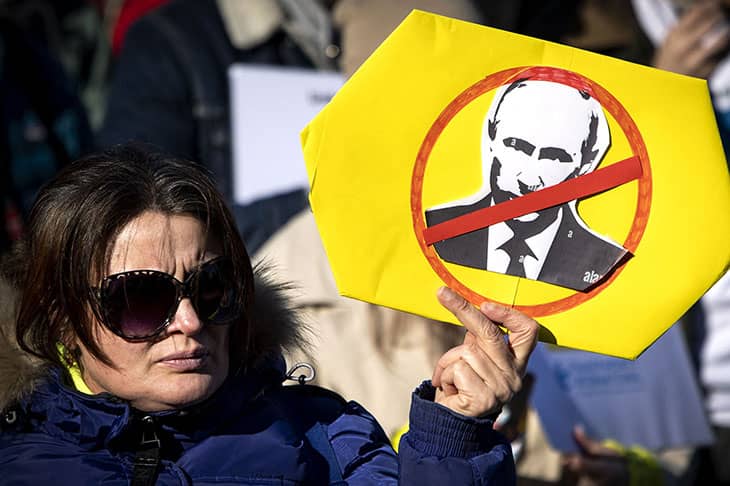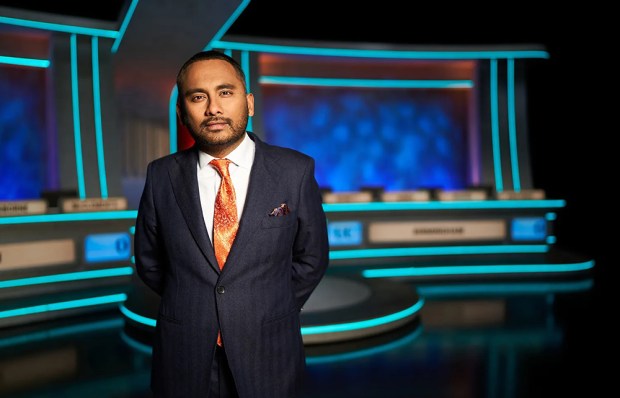The most emboldened man on earth must be Vladimir Putin. Everything seems to embolden him. Treating Russia as a pariah state could embolden him, wrote someone in the Telegraph, but Barack Obama’s previous attempts to engage with him had just emboldened him, wrote someone else. Liz Truss on a visit to Kiev last month, insisted the West should strengthen relations with Ukraine. ‘If we hang back, that would only embolden the bullies,’ she said. Nato’s humiliation in Afghanistan helped embolden Putin, wrote Colonel Richard Kemp; sanctions hitting the population can embolden him too, wrote Tobias Ellwood.
As Julian or Sandy, on the BBC Light Programme in the early 1960s, might have remarked of Kenneth Horne: ‘Oooh, innee bold?’ Boldness has come a long way from its early days as a quality always to be admired. In its Old English form, it featured in heroic names such as Theobald and Archibald. Fortune favoured the bold. Shakespeare reached for the adjective to apply to Hector. But even before Shakespeare’s day, to be bold could be to take liberties. Boldeis translated as presumptuosus, effrons in the 15th-century English-Latin dictionary called Promptorium Parvulorum. (Apromptorium is not a prompt-book but a storehouse, or, as that dictionary gives for the equivalent word promptuarium, ‘buttery’. A college buttery was not where they kept the butter but where they kept butts of ale and wine.)
Pope began his imitation of the first satire of Horace’s second book by declaring there are people ‘to whom my Satire seems too bold’, translating nimis acer, ‘too acid or strong’. Up to the last century one could be imboldened as well as emboldened, but today imboldened would stick out like a piece of boldtype.
The most surprising development has been in the English of the Philippines, where they talk of bold movies, meaning ‘sex films’, and refer to an actor in one as a bold star. I can’t say I’d fancy the shirtless Vladimir joining Julian and Sandy in a bold production of Carry On Up the Dnieper.
Got something to add? Join the discussion and comment below.
Get 10 issues for just $10
Subscribe to The Spectator Australia today for the next 10 magazine issues, plus full online access, for just $10.
You might disagree with half of it, but you’ll enjoy reading all of it. Try your first month for free, then just $2 a week for the remainder of your first year.















Comments
Don't miss out
Join the conversation with other Spectator Australia readers. Subscribe to leave a comment.
SUBSCRIBEAlready a subscriber? Log in